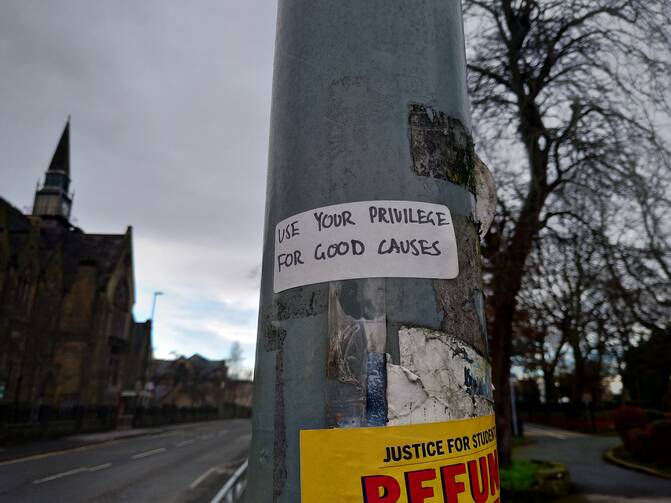Jesus reimagines leadership and privilege
The tone of the Gospel for the Twenty-first Sunday in Ordinary Time might be alarming or off-putting. Jesus visits communities and informs them that not all will be saved, as some “will not be strong enough.” As we wrestle with this text, we should be mindful of its intended purpose, which is to inspire rather than exclude.
“Strive to enter through the narrow gate” (Lk 13:24).
How do you live out the Gospel in your daily life?
What can you do to create a church that is more open and inclusive?
What do you do to proclaim the Gospel to others?
In the Gospel reading from Luke, Jesus travels to a variety of communities: “Jesus passed through towns and villages, teaching,” proclaiming the openness of the Gospel. The depiction of Jesus going out and encountering people in their own homes serves as a model for evangelization. Jesus meets diverse people where they are, and he teaches them in ways that inspire and challenge. This action helps us to interpret the rest of the passage which could seem especially exclusionary.
Jesus’ teachings inspire critical reflection, as someone inquires about how many people would be saved. Jesus does not directly answer the question but gives a powerful statement and short story in response.
“Strive to enter through the narrow gate.” Why would the gate to the kingdom of God be narrow? Shouldn’t it be wide so that many people can enter? The narrow gate might not be to keep people out of the kingdom but rather to require work to enter the kingdom. Jesus never gives an explicit limit on how many can enter; instead, he affirms that not all people are willing to make the effort that is needed for entry. The cost of entry is love—love of God and love of neighbors—and unfortunately some are unwilling to pay that cost.
Jesus notes that leaders should not assume their own privilege and position automatically results in a place in the kingdom, as some of the last will be first, and some of the first will be last.
While stating that some people would not enter, Jesus also notes that people from all over would enter: “People will come from the east and the west and from the north and the south and will recline at table in the kingdom of God.” Again, this reiterates the broadness and openness of the kingdom. Jesus’ ministry was clearly inclusive of all people, yet he stresses that people must be willing to change themselves in order to live out the Gospel.
At the end of the passage, Jesus speaks about leadership, which is a topic that has been addressed over the past few Sundays. Jesus notes that leaders should not assume their own privilege and position automatically results in a place in the kingdom, as some of the last will be first, and some of the first will be last.
This Gospel offers us many avenues for reflection. It is a reminder that we must recognize our responsibility in living and promoting the Gospel to enter the kingdom of God. Moreover, today’s Gospel affirms that those who are “cast out” are in such a position because of their own actions or inaction, not because God is not open and welcoming. Finally, the end of the Gospel offers an opportunity to think about hierarchies in the church and world, as Jesus gives us a vision of the kingdom as he reimagines notions of leadership and privilege.








